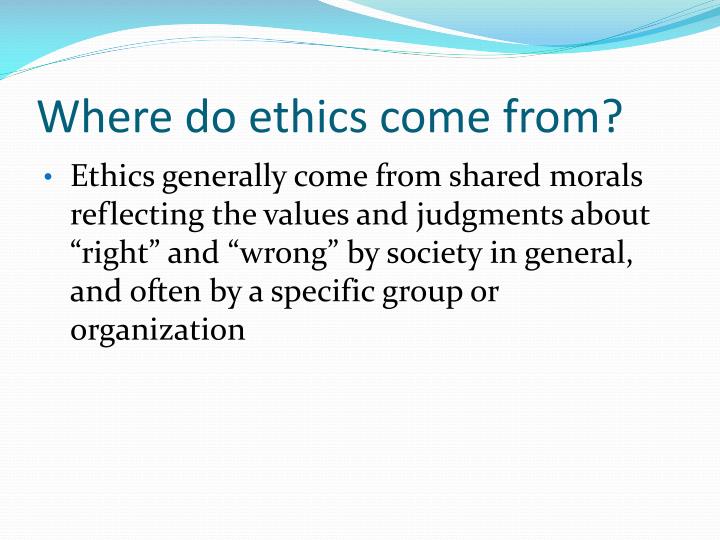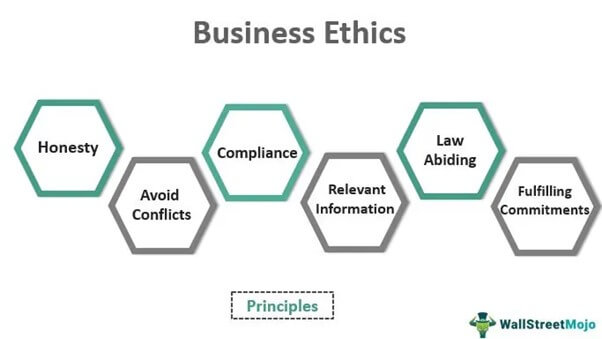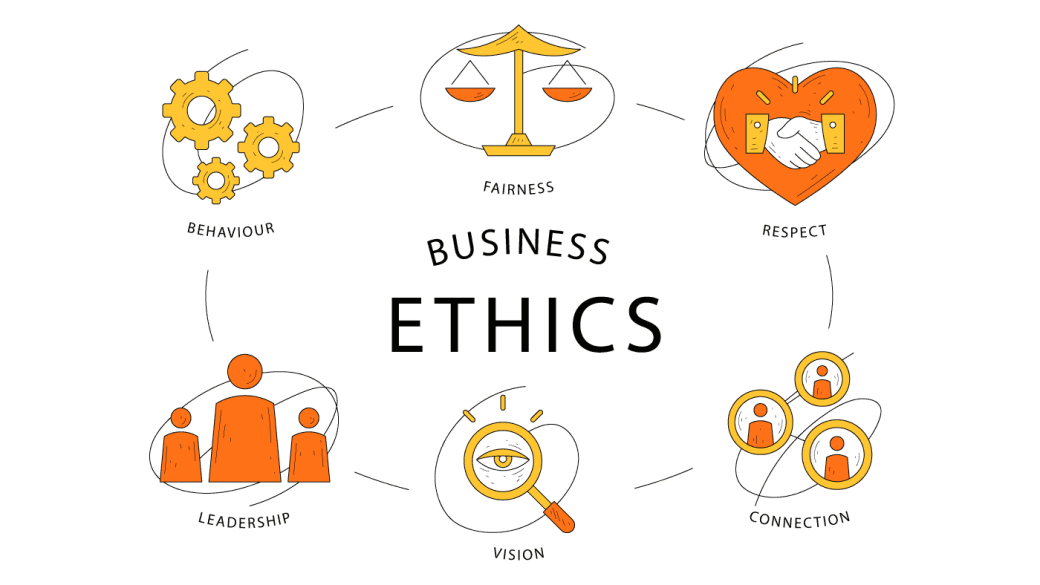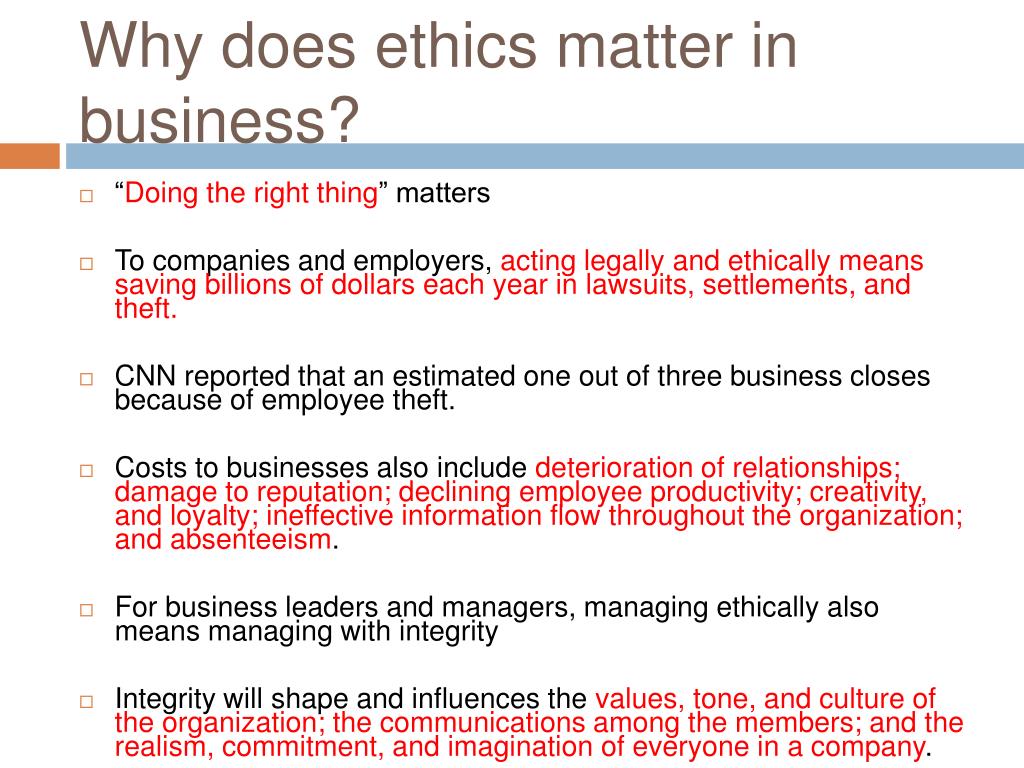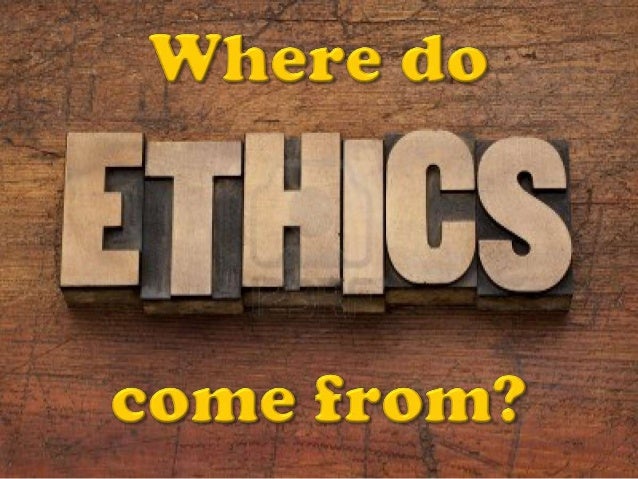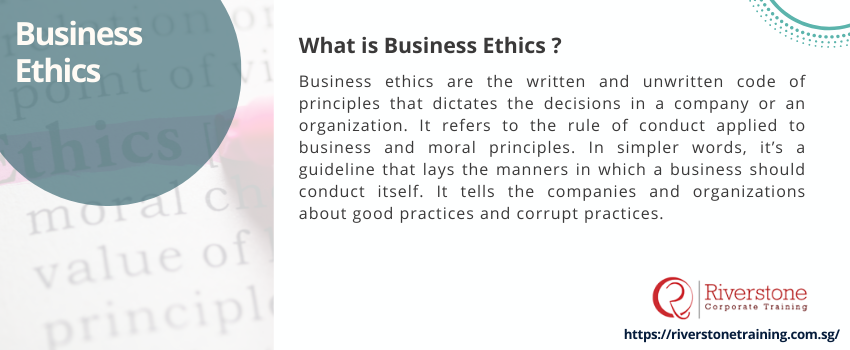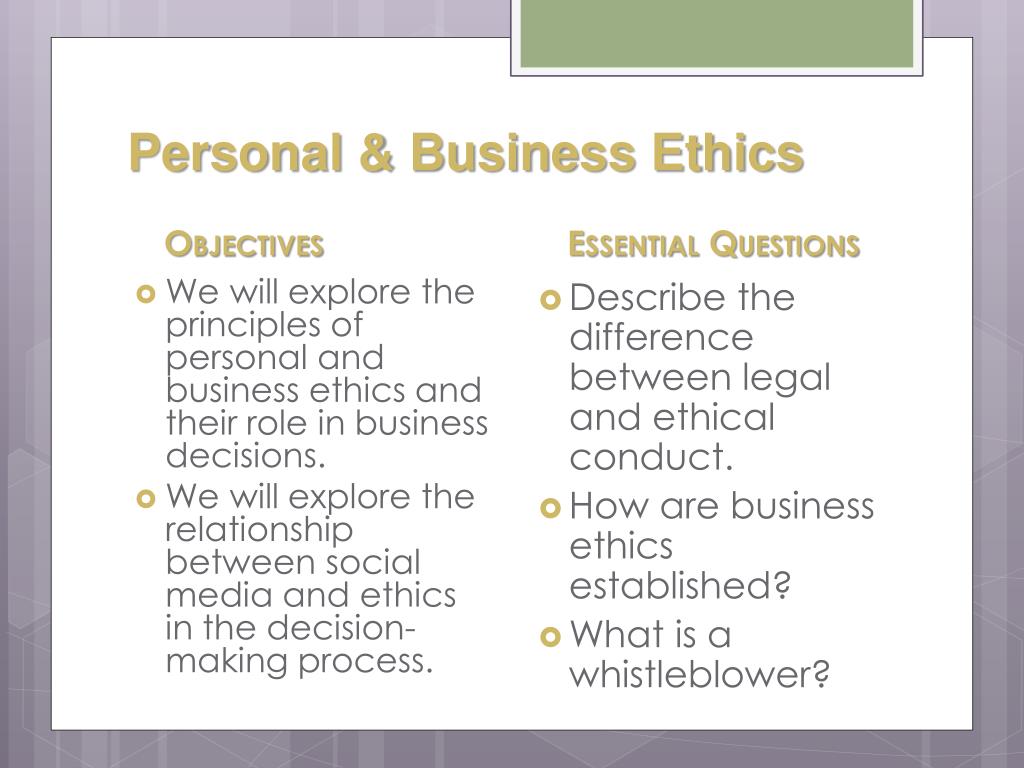Where Do Business Ethics Come From

In an era defined by corporate scandals and heightened public scrutiny, the question of where business ethics originate is more crucial than ever. From boardroom decisions to supply chain practices, ethical considerations are shaping the landscape of modern commerce.
This article delves into the complex origins of business ethics, exploring the influence of individual values, organizational culture, legal frameworks, and societal expectations. Understanding these sources is critical for fostering ethical conduct and building trust in the business world.
Individual Values: The Foundation of Ethical Behavior
The bedrock of business ethics often lies in the individual values held by employees, managers, and executives. These values, shaped by personal experiences, cultural norms, and religious beliefs, form the basis for ethical decision-making.
Milton Friedman, the Nobel laureate economist, famously argued that a company's primary responsibility is to increase profits for its shareholders, within the bounds of the law. However, this view has been challenged by those who believe that businesses have a broader responsibility to stakeholders, including employees, customers, and the community.
Organizations increasingly recognize the importance of hiring individuals whose values align with the company's ethical standards. Companies often implement ethics training programs designed to reinforce ethical principles and provide guidance on navigating complex ethical dilemmas.
Organizational Culture: Setting the Tone at the Top
The organizational culture plays a significant role in shaping ethical behavior within a company. A culture that prioritizes ethical conduct, transparency, and accountability fosters a more ethical environment. Conversely, a culture that rewards unethical behavior or tolerates misconduct can create a breeding ground for ethical lapses.
"The tone at the top" is crucial for establishing an ethical culture, according to the Ethics & Compliance Initiative (ECI). When leaders demonstrate a commitment to ethical behavior, employees are more likely to follow suit.
Whistleblower protection policies are also vital for promoting ethical behavior. These policies encourage employees to report suspected misconduct without fear of retaliation.
Legal and Regulatory Frameworks: Establishing Boundaries
Laws and regulations provide a framework for ethical conduct in business. These frameworks establish minimum standards of behavior and impose penalties for violations.
The Sarbanes-Oxley Act (SOX), enacted in response to corporate accounting scandals, is a prime example. SOX introduced stricter regulations for financial reporting and corporate governance.
While laws and regulations are essential, they are not always sufficient to ensure ethical behavior. Ethical decision-making often requires going beyond the letter of the law to consider the spirit of the law and the impact on stakeholders.
Societal Expectations: Adapting to a Changing World
Societal expectations are a powerful force shaping business ethics. As societal values evolve, businesses must adapt their practices to meet changing expectations.
Concerns about environmental sustainability, social justice, and human rights are increasingly influencing business decisions. Companies are under pressure to demonstrate a commitment to corporate social responsibility (CSR).
Consumers are more likely to support businesses that align with their values. This trend is driving companies to adopt more ethical and sustainable practices.
The Interplay of Influences
The origins of business ethics are not singular but rather a complex interplay of individual values, organizational culture, legal frameworks, and societal expectations.
These influences are constantly evolving and interacting, shaping the ethical landscape of the business world. By understanding these sources, businesses can foster a culture of ethical conduct and build trust with stakeholders.
Ultimately, fostering ethical behavior in business requires a multi-faceted approach that addresses all of these influences. It demands a commitment from individuals, organizations, and society as a whole.

